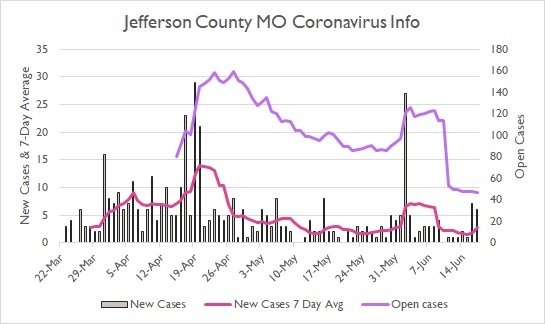I thought I’d put together a short description of Missouri’s Sunshine Law and how you can use it to get information from our local governments. This is a tool I have used a number of times, and anyone can use it, not just journalists or big-time bloggers.
The Sunshine Law is enshrined in state statutes and sets out the requirements for what information a government must share, and in what cases it can keep items confidential. It also sets out how citizens can make requests for information that the government entities are legally required to respond to. In cases of violation of the law, the state attorney general can get involved to force the entity to fulfill the request.
Meetings
Part of the law pertains to the notice that must be given in advance of meetings of government bodies, and that those meetings must be open to the public, except for closed sessions. The agenda of the meeting is included in this notice. Sometimes, a government entity will just post the notice on the door of city hall. This is sufficient, but it is weak, and cities should be posting full agendas and meeting schedules on their websites. Some cities in JeffCo are good at this (Pevely, Arnold) and others are abysmal (Hillsboro, DeSoto [but the latter has improved slightly]).
If you are interested in keeping close tabs on a government body, it is a good idea to check each agenda before the meeting to see what will be discussed. This may offer the only chance to learn about or comment on something before it gets voted on.
These provisions also prevent elected officials from gathering in a quorum to discuss official business outside of an announced meeting.
Regarding closed sessions, the law outlines what reasons are permissible for going into closed sessions (closed sessions are allowed, but rarely required). Governing bodies are supposed to cite in the agenda the specific reason they are going into closed session (legal issue, real estate, personnel issue, etc). Results of votes in closed sessions regarding hiring, firing, disciplining or promoting of particular employees must be released within 72 hours of the vote.
Police Reports
There are three types of police reports mentioned in the Sunshine Law: arrest reports, incident reports and investigative reports. The first two of these are basic reports that describe the initial facts related to an arrest or the initial report of a crime or incident. These reports are open records and can be requested right away after the arrest or incident. They may not have very much information other than date, time, and location of the incident, but can often serve to indicate that something happened, pursuant to a rumor or unconfirmed report that a noteworthy event occurred.
Investigative reports offer a detailed account of the facts behind an incident, and the results of any investigation done by law enforcement. These reports are not available until the investigation becomes inactive, either because charges aren’t being pursued or the accused are convicted. But if charges are filed, a lot of this information shows up in the case records.
Government Documents
The Sunshine Law can be used to acquire a number of government documents, including contracts (for professional services, employees, purchases, etc), legal settlements (unlike in private lawsuits, settlements involving governments can’t be kept secret), budgets, even emails and internal memos.
Submitting Requests and Costs
Sunshine requests can be sent most often to city clerks or board secretaries by email. The Missouri AG provides some sample language for Sunshine requests; some cities have forms they want you to fill out. Government bodies are required to respond to your request within 3 business days. This doesn’t mean they have to give you the requested info in that time frame, but they have to acknowledge your request and let you know they are working on it.
Entities are limited in what they can charge you for these requests; 10 cents per page for copies and “the hourly fee for duplicating time not to exceed the average hourly rate of pay for clerical staff of the public governmental body.” Also, “based on the scope of the request, the public governmental body shall produce the copies using employees of the body that result in the lowest amount of charges for search, research, and duplication time.”
But the entity doesn’t have to charge you. “Documents may be furnished without charge or at a reduced charge when the public governmental body determines that waiver or reduction of the fee is in the public interest.” Some bodies will waive the fees, some won’t, but it is worth asking.
Sometimes entities will try to charge you a lot up front to dissuade you from making a request. For example, on one occasion Pevely tried to make me pay $125 up front so the city attorney could redact documents before they were given to me. After this happened, a St. Louis County judge ruled that governments cannot charge fees for redacting and segregating closed records. This case reportedly only applies to St. Louis County, but I suspect the ruling would weigh heavily if someone filed suit in another county over this practice.
Enforcement
If you think a government entity is screwing you over in refusing to release information, you can complain to the state Attorney General. The AG takes these complaints seriously, and the AG’s office has intervened several times in recent years in response to Sunshine complaints out of JeffCo. And if you aren’t sure, you can call them and get some guidance on whether you might have a case.
A Powerful Tool
I hope this post is useful to anyone out there that is interested in local government and holding elected and appointed officials accountable. As I said, the Sunshine Law can be used by anyone, and it is a powerful tool that provides citizens with the ability to acquire information from governments.
Tags: sunshine law





